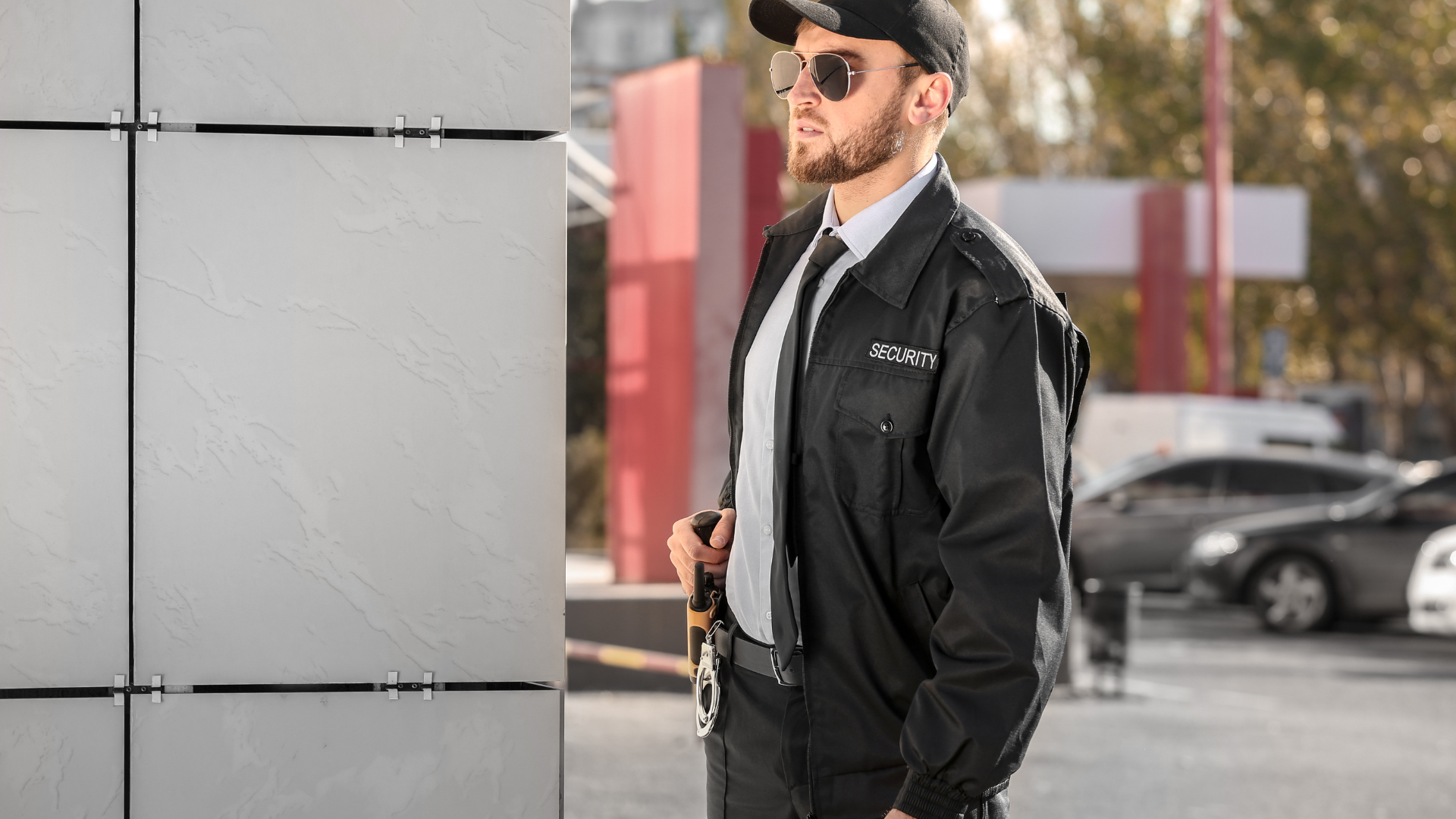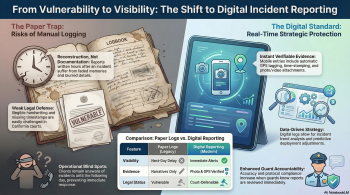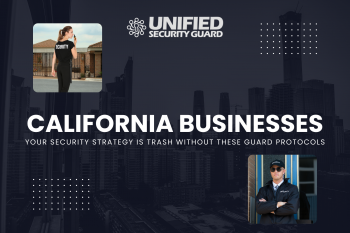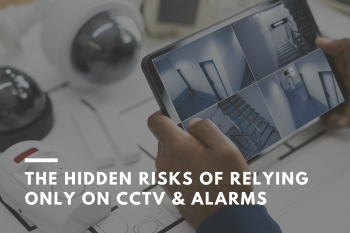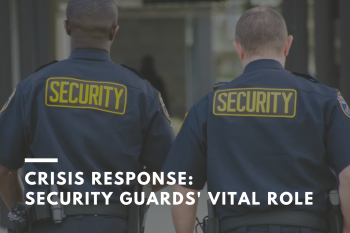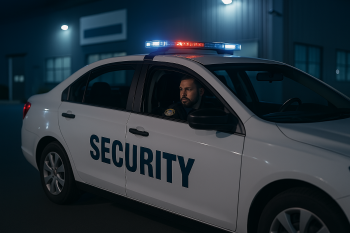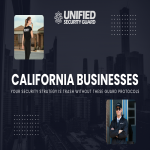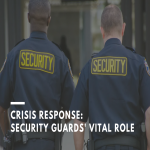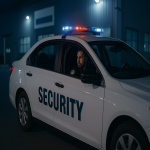Which Security Guard is Right for You? A Guide to Uniformed, Armed, and Unarmed Services
Choosing the right type of security guard is crucial for ensuring the safety and security of your property, event, or business. Security guards come in various forms, each with specific roles, training, and capabilities. This guide explores the differences between uniformed, armed, and unarmed security services to help you determine which type best suits your needs.
What is a Uniformed Security Guard?
Uniformed security guards are recognizable by their distinct uniforms, which clearly identify them as security personnel. The primary function of uniformed guards is to provide visible deterrence and maintain order. Key features include:
Visible Presence: The uniform serves as a deterrent to potential criminals and creates a sense of security among employees, guests, or residents.
Customer Service: Uniformed guards often handle customer service duties, such as assisting with directions or responding to inquiries.
Patrols and Surveillance: They conduct regular patrols and monitor surveillance systems to ensure safety and security.
Professional Appearance: The uniform is designed to convey authority and professionalism.
Visible Presence: The uniform serves as a deterrent to potential criminals and creates a sense of security among employees, guests, or residents.
Customer Service: Uniformed guards often handle customer service duties, such as assisting with directions or responding to inquiries.
Patrols and Surveillance: They conduct regular patrols and monitor surveillance systems to ensure safety and security.
Professional Appearance: The uniform is designed to convey authority and professionalism.
What is an Armed Security Guard?
Armed security guards carry weapons and are trained to handle potentially dangerous situations where a higher level of security is required. Key aspects of armed security guards include:
Enhanced Security: The presence of a weapon provides a significant deterrent and can be crucial in high-risk environments or situations requiring a strong security presence.
Training and Licensing: Armed guards undergo extensive training in firearm use, self-defense, and legal procedures. They must also comply with strict licensing requirements.
Emergency Response: They are equipped to respond to violent incidents, manage critical situations, and protect people and property with the use of force if necessary.
Deployment: Armed guards are typically employed in environments such as financial institutions, government buildings, and high-profile events where there is a higher risk of violence.
Enhanced Security: The presence of a weapon provides a significant deterrent and can be crucial in high-risk environments or situations requiring a strong security presence.
Training and Licensing: Armed guards undergo extensive training in firearm use, self-defense, and legal procedures. They must also comply with strict licensing requirements.
Emergency Response: They are equipped to respond to violent incidents, manage critical situations, and protect people and property with the use of force if necessary.
Deployment: Armed guards are typically employed in environments such as financial institutions, government buildings, and high-profile events where there is a higher risk of violence.
What is an Unarmed Security Guard?
Unarmed security guards perform security duties without carrying weapons. They are often employed in situations where the risk level is lower but where a security presence is still needed. Key features of unarmed security guards include:
Focus on Surveillance and Deterrence: Unarmed guards provide a visible security presence and monitor activities to deter theft, vandalism, or other issues.
Customer Interaction: They often engage in customer service, assist with inquiries, and manage minor incidents.
Training: While they do not carry weapons, unarmed guards receive training in conflict resolution, emergency response, and basic security protocols.
Deployment: Unarmed guards are commonly found in retail environments, office buildings, and residential areas.
Focus on Surveillance and Deterrence: Unarmed guards provide a visible security presence and monitor activities to deter theft, vandalism, or other issues.
Customer Interaction: They often engage in customer service, assist with inquiries, and manage minor incidents.
Training: While they do not carry weapons, unarmed guards receive training in conflict resolution, emergency response, and basic security protocols.
Deployment: Unarmed guards are commonly found in retail environments, office buildings, and residential areas.
Key Considerations for Choosing the Right Security Guard
Risk Level:
Risk Level:
Uniformed: Suitable for general security and deterrence in most environments.
Armed: Best for high-risk situations where the potential for violence is higher.
Unarmed: Ideal for lower-risk areas where the presence of security is needed but weapons are not necessary.
Training and Expertise:
Training and Expertise:
Uniformed: Provides basic security services and customer assistance.
Armed: Requires extensive training in firearm handling and emergency response.
Unarmed: Focuses on conflict management and surveillance.
Regulatory Requirements:
Regulatory Requirements:
Uniformed: Standard requirements for security personnel.
Armed: Must adhere to strict licensing and training regulations.
Unarmed: Generally requires less stringent regulations compared to armed guards.
Budget and Resources:
Budget and Resources:
Uniformed: Often more cost-effective and suitable for a range of environments.
Armed: Typically comes with higher costs due to training and equipment.
Unarmed: Generally more affordable, but may not offer the same level of deterrence as armed or uniformed guards.
Conclusion
Choosing the right type of security guard depends on the specific needs of your property, event, or business. Whether you need the visible deterrence of a uniformed guard, the enhanced security of an armed guard, or the customer service focus of an unarmed guard, understanding the differences can help you make an informed decision.
For more information on selecting the right security personnel for your needs, contact Unified Security Guard at +1 (888)-992-1791 or info@unifiedsecurityguard.com. Our team is here to help you find the best security solutions to ensure your safety and peace of mind.
FAQs
What is the main role of a uniformed security guard?
What is the main role of a uniformed security guard?
Uniformed security guards provide a visible deterrent, maintain order, and assist with customer service.
When should I consider hiring an armed security guard?
When should I consider hiring an armed security guard?
Armed security guards are ideal for high-risk environments or situations where a higher level of security is required.
What training do armed security guards undergo?
What training do armed security guards undergo?
Armed guards receive extensive training in firearm use, self-defense, and legal procedures, and must comply with licensing requirements.
Are unarmed security guards effective in deterring crime?
Are unarmed security guards effective in deterring crime?
Yes, unarmed guards provide a visible security presence and can effectively deter theft and vandalism in lower-risk environments.
How do I choose the right type of security guard for my needs?
How do I choose the right type of security guard for my needs?
